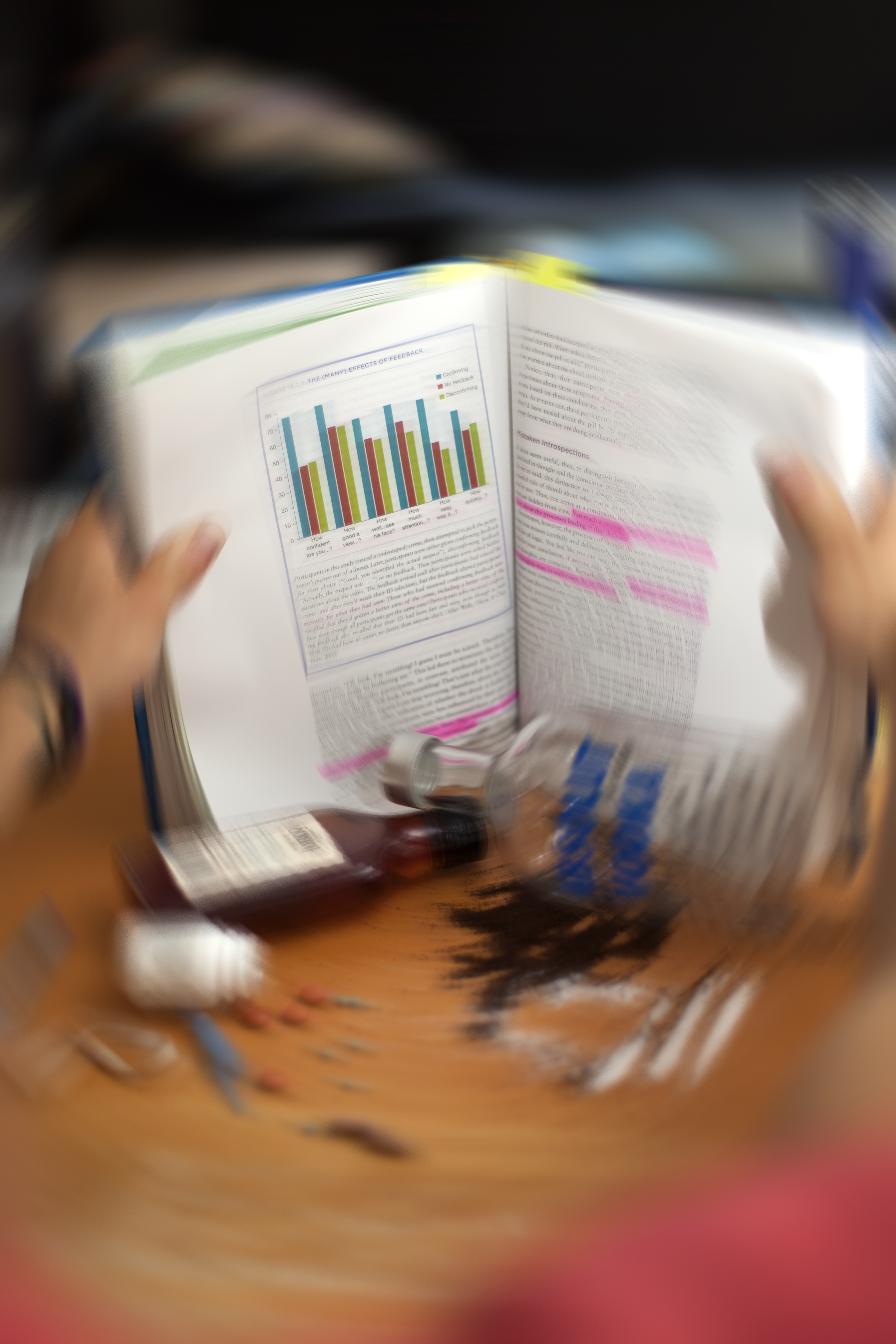A drug for every student need

University students are living with a dangerous dependency on drug consumption to fix daily problems

There’s alcohol for courage, marijuana for relaxation, Adderall for academic performance, caffeine to stay awake, birth control pills to prevent sexual errors, MDMA for increased happiness and Xanax to numb everything. The list goes on. The world is a charging train of synthesized solutions, with every stop being a student need. Why do we rely on artificial stimulation?
Non-prescribed drug consumption is no longer a mere basis for getting high or zoning out; it has become a perceived doorway for adapting to circumstance and zoning in. The biggest issue is that the use of one drug can lead to the dependency of another, with all the pressures of a university student becoming catalysts for another non-prescribed player.
The following may sound familiar: After a weekend of intense binge drinking, your pounding hangover locks you under the bed covers on the Monday morning of an important lecture. In a desperate attempt to wake up, good old caffeine becomes your best friend. You consume an excessive amount — three or more cups of coffee to ease the pain. As you sit in the lecture, trying to focus, you feel your concentration failing. Your hand may start twitching and your prof might as well be speaking Cantonese.
Let’s fast-forward a few months to exam period. Remember that lecture when you were battling with a hangover, buzzing with caffeine and your prof wasn’t speaking English? Well you never reviewed the content and your several weeks behind in studying. Adderall to the rescue! You swallow the pill(s) and pull an all-nighter scanning textbooks and note-taking.
After several hours, the struggle to stay alert continues and you call over good old caffeine yet again. Despite the long night of perceived preparation, you write the exam unprepared and unrested. Hoping to escape the worries of the previous academic trainwreck, you turn to some Xanax to numb the world of your sorrows, or you might go out drinking with your friends to distract your distressed mind. Inevitably, the cycle continues.
Getting drunk is not suddenly a growing epidemic. For a bunch of students, it’s no more a dependency than eating a bag of popcorn while watching a movie — it’s a custom of entertainment that’s embedded in our culture. There’s no denying the dangerous effects of binge drinking, but these dangers are certainly not new. This being said, alcoholism has taken a back seat to “self-improvement” supplementation.
This can be as minor as pre-workout powders to give you that extra edge during a workout, or as extreme as non-medical use of psychostimulants such as Adderall and Ritalin to enhance overall focus in times of overwhelming stress.
Why do we feel such a need to get ahead of our naturally functioning bodies?
The pressure is on. We feel it every second we’re reminded of our degrees. We fear what the future holds in store for us. We are constantly aware of the competitive battlefield of careers and credentials and many of us have come to accept that hard work is no longer enough. Worries of the future fuse with the worries of our present. We need to maintain a social life. We find ourselves desperate to relax. We’re hungry for an edge. We want to feel good, look great and fight for something more. Our lives are booming in a thunderstorm of due dates, deadlines and expectations. The truth is that many of us see drug consumption as the only way to calm the storm.
The problem is that these deep-rooted dependencies are warping our brains and cancelling out the practicalities of real life. They are damaging our health and being deluded as study tools or harmless entertainment.
Amphetamines such as Adderall may appear to be harmless and worth it for the higher grade, but jacked up heart rates, depression from decreased levels of dopamine, fevers, chills and seizures that can eventually join the study party makes the academic significance quickly forgotten.
A night of alcohol consumption at Phil’s is not likely to make you immediately drop dead. However steady binge drinking over a long period of time increases chances of high-blood pressure, stroke, other heart-related problems, liver disease and nerve damage.
For every drug, the list of side effects goes on. It’s important to understand what we are putting in our bodies, beyond the benefits that are being supplied for us. The pressures of daily life may appear impossible to push through, but compromising our health should not be the solution.

